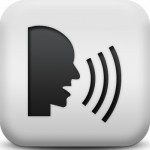I don t want to speak to English people!
Do you ever feel embarrassed about your English pronunciation? Do you often feel that your reading, grammar and listening are much better than your speaking? Then this is the blog post for you.
7 Pronunciation Tips
 You should never be ashamed of how you speak. It is perfectly natural to have an accent and it is part of your national and cultural identity. Remember the most important thing is to communicate with others, to understand and be understood. Also remember that English people often find accents sexy! But here are seven tips on how to notice and improve your pronunciation if that is what you want or if your accent is causing you communication problems. These tips are about recognizing how native speakers speak and also actively helping yourself.
You should never be ashamed of how you speak. It is perfectly natural to have an accent and it is part of your national and cultural identity. Remember the most important thing is to communicate with others, to understand and be understood. Also remember that English people often find accents sexy! But here are seven tips on how to notice and improve your pronunciation if that is what you want or if your accent is causing you communication problems. These tips are about recognizing how native speakers speak and also actively helping yourself.
- Language learners often accuse English people of eating words . It s true that we eat parts of them. Stress (the emphasis we put on some syllables) means that some parts of words are said longer and louder than others. As a consequence, the other parts of those words become shorter and quieter. Stress is what makes the pronunciation of words like sixteen and sixty or desert and dessert different. Always make a note of the stress on new words and exaggerate the length of those stressed syllables!
- English speaking people actually really do eat their words! Well, some words at least. Just like we stress some syllables in words, in sentences we also emphasise some words more than others. This means the words we don t stress become shorter and quieter. Notice how English people use lots of contractions and eat words like prepositions and articles. Try to copy them and, again, make a note of stress in new phrases or sentences that you learn.
- One of the best ways to notice English pronunciation is to do lots of listening practice. If you find listening really hard, then try listening and reading at the same time, for example using graded readers or the CD and tapescripts at the back of your coursebook. Cross out the words which are eaten and underline the stressed syllables.
- Have a model in your head. Imagine your teacher or a famous native speaker saying the words or phrases and try to copy them.
- Record yourself. Sometimes it can be difficult to recognize the mistakes we are making and one of the best ways to identify them is to listen to a recording of ourselves. At first it can be a bit embarrassing but you soon get used to it!
- Learn the phonemic symbols which we use to show the pronunciation of words, or at least some of them. This will help you to note down how new words are said and distinguish between how you think it might be said and how it really is.
- Practise a lot too. There are plenty of sites where you can match spelling, phonemic symbols and a voice recording, such as
- http://davidbrett.uniss.it/
- http://downloads.bbc.co.uk/
- http://www.bbc.co.uk/
- www.teachingenglish.org.uk/
- www.bbc.co.uk/worldservice/
- www.phon.ucl.ac.uk/

